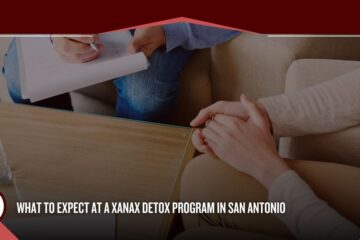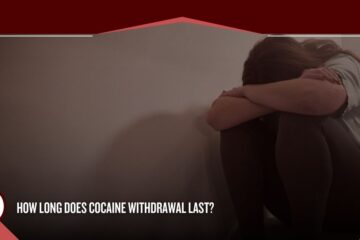Benzodiazepine drugs are some of the most commonly prescribed medications in the United States. Many people believe that prescription drugs are always safe, but many have the potential for misuse and addiction.
People who misuse benzos may become addicted to them. Benzo addiction is a complex condition that requires comprehensive treatment and continuing support.
This article will detail what happens during benzo detox treatment in San Antonio. You will learn:
- What benzos are
- How benzo addiction occurs
- What to expect at a benzo detox in San Antonio
- Where to find treatment for benzodiazepine addiction
If you or someone you love needs benzo addiction treatment, effective treatment programs are available at Alamo Behavioral Health in San Antonio. Contact our specialists now to learn about our medically supervised programs or to schedule an intake assessment.
What are Benzos?
Benzodiazepine drugs–sometimes called “benzos”– are sedative prescription drugs.[1] Doctors may prescribe benzodiazepines to help patients reduce symptoms associated with:
- Alcohol withdrawal
- Anxiety disorders
- Panic disorder
- Seizures
- Insomnia
Some commonly prescribed benzodiazepines include:
- Alprazolam (Xanax)
- Diazepam (Valium)
- Clonazepam (Klonopin)
- Clorazepate (Tranxene T-Tab)
- Lorazepam (Ativan)
- Estazolam (ProSom)
- Flurazepam (Dalmane)
- Temazepam (Restoril)
- Chlordiazepoxide (Librax)
Benzodiazepine drugs can decrease central nervous system (CNS) activity and reduce symptoms of panic, tension, and anxiety.
The Effects and Risks of Benzodiazepine Abuse
The effects of benzos begin soon after a person takes them. They may notice calming effects, including:[2]
- Drowsiness
- Reduced anxiety
- Slower breathing
- Sedation
People may develop tolerance to benzos, meaning they must take more to get the desired effects. Tolerance can lead to misuse, which includes:
- Taking a larger dose than prescribed
- Taking doses more frequently than prescribed
- Taking a medication for longer than prescribed
- Taking benzos recreationally (without a prescription)
Up to 17.2% of all benzodiazepine use in the U.S. is characterized as misuse.[3] Benzo misuse can lead to physical dependence. When people with benzo dependence stop using these drugs, they may experience withdrawal symptoms.
The severity of the withdrawal symptoms and intense cravings can make it nearly impossible to quit using benzos on your own. You must seek medication-assisted treatment at an addiction treatment center.
What Happens During Benzodiazepine Detox?
An addiction rehab program will typically begin with a medically supported detox program. During detox, mental health and medical professionals will monitor you and treat your withdrawal symptoms.
Benzo withdrawal symptoms may begin within 24 hours of your last dose of benzos. Symptoms may include:[4]
- Insomnia
- Irritability
- Nausea
- Excessive sweating
- Appetite loss
- Tremors
- Agitation
- Intense cravings
Some people experience suicidal thoughts during benzo withdrawal. Round-the-clock supervision and treatment are essential to keeping you safe throughout the detox process.
Your detox treatment program may include:
- 24/7 supervision and access to treatment
- Medications to reduce the risk of complications and withdrawal symptoms during detox. For benzodiazepine withdrawal, individuals are usually weaned off the medication slowly. Doctors may prescribe a long-acting benzodiazepine to help alleviate withdrawal symptoms. The dose may be gradually reduced over a period of days or weeks.
- Nutrition support, mindfulness, yoga, and other holistic therapies
- Mental health treatment and emotional support
- A secure environment
This care can help you detox safely and prepare you for comprehensive treatment.
How Long Does Benzo Detox Last?
Many factors can affect how long your benzo detox lasts. Here is an overview of what to expect during benzo withdrawal.
1-3 days
Withdrawal symptoms typically start within the first day after your last dose of benzos. You may experience intense physical and psychological symptoms during this stage. Your risk of seizures is highest during the first three days of detox.
One week
Your symptoms may intensify over the first week without benzos. You may have insomnia, mood swings, and intense cravings. Continued detox care is essential during this stage.
Two weeks
Your physical symptoms may begin to improve, and your risk of seizures is much lower. However, your psychological symptoms may become worse. Many people experience:
- Anxiety
- Depression
- Insomnia
- Cravings
You must have continued support even if you begin to feel better. Relapse is still a risk at this stage of detox.
Three weeks and beyond
Your physical symptoms may have disappeared by this stage of detox, although psychological symptoms may remain. Some people continue to struggle with headaches or heightened senses for some time, and many have lingering insomnia for several weeks.
Many people participate in an inpatient detox program before transitioning into outpatient treatment. Consistent, comprehensive treatment and support are critical during detox and afterward to help you prevent relapse.
Benzo Addiction Treatment
After completing detox, you must engage in a comprehensive treatment program to help you address the roots of your substance abuse. A benzo detox center in San Antonio can help your body rid itself of benzos, but you must seek treatment for the emotional and behavioral aspects of your addiction, too.
A treatment program can help you build a strong foundation of support and skills to avoid relapse. Your treatment plan may include:
- Mental health treatment
- Individual, family, and group therapy sessions
- Medications
- Holistic therapies, including exercise, nutrition support, mindfulness, art therapy, and more
- Relapse prevention education
- Aftercare planning
Start Your Recovery at our San Antonio Benzo Detox Center
If you or someone you love struggles with drug and alcohol abuse, you are not alone. Contact the Alamo Behavioral Health specialists now to explore your detox treatment options in San Antonio.
References:
- United States Drug Enforcement Administration (DEA): Benzodiazepines
- National Institutes of Health (NIH): Benzodiazepines
- National Institutes of Health (NIH): Benzodiazepine Use and Misuse Among Adults in the United States
- Sage Journals: Enduring neurological sequelae of benzodiazepine use: an Internet survey




